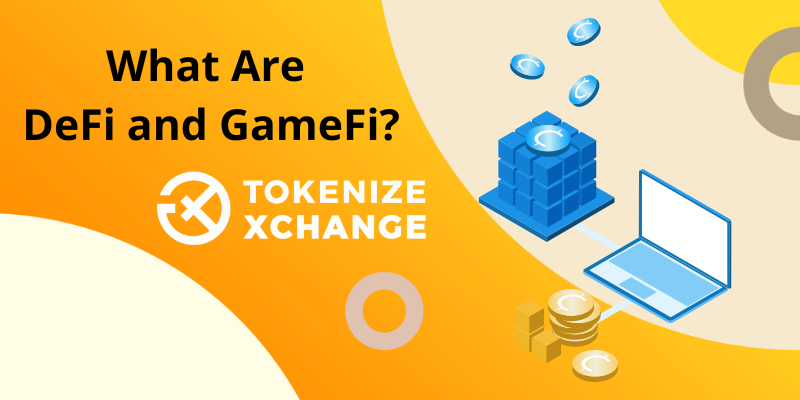
The development of blockchain leads to the appearance of the terms such as DeFi and GameFi and they are gaining more attention than ever before. Businesses and industries are finding ways to have a share in this new realm by investing cryptocurrencies into the protocols. How are these 2 concepts differ from the finance and gaming sectors’ traditional concepts?
DeFi
DeFi is the short form for ‘Decentralised Finance’, referring to peer-to-peer financial services such as loans, assets, exchanges, and stablecoins that are built on top of decentralised blockchains. Currently, a majority of the DeFi world is built on the Ethereum blockchain, which has been picking up speed as an upgrade to Ethereum 2.0 moves ahead. With DeFi, you can do most of the things that banks support: earn interest, borrow, lend, buy insurance, trade derivatives, assets, and more. It’s faster and doesn’t require paperwork or a third party. As long as you are connected to the internet, you can access thousands of financial products at any time of the day. With DeFi, the unbanked can access opportunities and products not traditionally available to them, such as loans and investments.
Below are some key differences between traditional finance and DeFi:
Traditional finance:
- You’re trusting a company to hold into your money
- International payments take days to be processed
- A company must give you access
- Markets are closed because employees don’t work 24/7
- Many financial flows are kept hidden
Now, here’s how DeFi improves traditional finance:
- You’re in control of your money
- International payments are processed in minutes
- Anyone can use DeFi
- The markets are always open because the code runs 24/7
- It’s fully transparent and anyone can see how a system operates
How does Defi work?
Users typically engage with DeFi via software called dApps (decentralized apps), most of which currently run on the Ethereum blockchain. It’s the foundation of the current DeFi ecosystem. However, other layer 1 blockchains are emerging as DeFi competitors in order to combat some of Ethereum’s flaws such as high transaction fees, which include Algorand, Cardano, and Solana. Along with Ethereum, these three cryptocurrencies are viewed as prospective DeFi blockchains to support smaller businesses in developing markets, particularly for remittances and small loans. The World Economic Forum also highlighted the need for DeFi as the need for financial instruments has been ‘unmet by the traditional banking system’.
DeFi is seen by many as much more than an investment opportunity or just a replacement to the traditional financial system. It allows new tools and techniques to make financial instruments accessible to people globally.
GameFi
GameFi is simply a fusion of ‘game’ and ‘finance’. GameFi combines cryptocurrency, blockchain, NFTs, and game mechanics to create a virtual environment where players participate and earn money in the process. It refers to play-to-earn (P2E) blockchain games that offer economic incentives to players. Unlike traditional video games, most blockchain games let players transfer the gaming items out of the game’s virtual world. This allows players to trade their items on NFT marketplaces and their crypto earnings on crypto exchanges.
Although the ideas of GameFi have been applied before, it was not until Axie Infinity became a billion-dollar project in terms of capitalization that GameFi was noticed by many people. Since its launch, it has achieved certain successes and gradually became a trend in the cryptocurrency market.
How does GameFi work?
The GameFi project is usually built on a distributed blockchain platform, allowing players to have ownership of virtual in-game items. For example, some games have systematic quests, which, when completed, can give the player certain tokens. Other models include needing to purchase in-game items (in the form of NFTs) to be able to play the game, and players can exchange items on the market for money. Generally, players can earn cryptocurrency and NFT rewards by completing tasks, battling other players, and progressing through the different game levels.
The play-to-earn mechanism is ultimately the passport to broader crypto adoption as blockchain and NFT games provide an idea of the future of the gaming industry. At this rate, GameFi and NFTs will become a rallying point for DeFi. With the current rapid development and innovation of blockchain technology, breakthroughs in the coming time will certainly be applied to games, introducing a huge number of gamers into the cryptocurrency space and generating new forms of revenue.